|
Biographies |
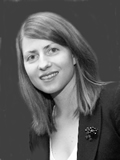 Tabitha Allum Tabitha Allum
Stagetext, UK
Tabitha Allum is the Chief Executive of STAGETEXT, the organisation that
provides and supports the provision of captioning in the arts across the UK.
Prior to joining STAGETEXT, Tabitha worked for Arts Council England where she
had responsibility for encouraging arts venues to make their work accessible
to deaf and disabled people. She previously worked as a fundraiser for Northern Stage,
a theatre company based in Newcastle upon Tyne, and as an advisor on fundraising
for a voluntary organisations development agency.
|
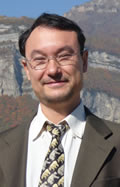 Emmanuel Buu Emmanuel Buu
Interactivity Video and Systems (France)
In 2006, Emmanuel BUU has co-founded the Interactivity Video and Systems (IVèS) company with
Didier Chabanol and Pascal DUPUY, two persons with more than 10 years of experience in the
telecommunication industry. IVèS is a private company that develops, host and operate value
added services on live video communication and on Total Conversation (voice, video and realtime text).
IVèS puts a strong emphasis on standards and on creating services that are really useful for people.
IVèS was selected by Websourd and Significan't to provide the technology basis for their video relay
services. Emmanuel BUU has previously worked for eServGlobal Inc. in various positions ranging from
software developer, support manager to solution architect, participating in many technical projects
with telco operators in Africa in the Middle-East including the Egypt's number one mobile operator:
Mobinil. He gratuated as telecommunication engineer in l'Ecole Nationale Supérieure des
Télécommunications in Paris and acquired through field experience a significant on technical matters
pertaining to telecommunications.
|
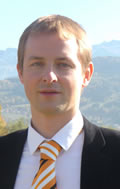 Didier Chabanol Didier Chabanol
Interactivity Video and Systems (France)
Didier CHABANOL is a co-founder of IVèS, an innovative company that designs, develops, hosts and operates
value added services based on live video communication and on Total Conversation (voice, video and realtime text).
IVèS puts a strong emphasis on standards and on creating services that are really useful for people. Didier CHABANOL
is in charge of Video Relay Services partnership. In 2009 IVèS is the VRS technology partner of the visiO08 service
in France and of the Signvideo service in UK. Didier CHABANOL has previously worked for FERMA in various positions
ranging from software developer, support manager, for international telecommunication operators including Orange,
MTN, Orascom, Sabafon. He gratuated as software engineer in Paris XIII – Galilee institute.
|
 Gunnar Hellström Gunnar Hellström
Omnitor, Sweden
Gunnar Hellström specializes in Telecommunications and Information Technology accessible to people with disabilities.
He is the founder of Omnitor, Sweden, devoted to product development and service provision in this area. Through a
series of engagements, Gunnar has provided international leadership and been instrumental for the creation of
numerous international standards for accessible telecommunication services, including real-time text conversation
in multimedia, the Total Conversation concept, text telephony, wireless multimedia and video communications for sign
language and lip-reading. Gunnar served as Rapporteur for Accessibility to Multimedia within ITU-T Study Group 16
during 1997-2004, and has performed many projects for development and policy creation in accessible communication.
He has also led the development of "Allan eC," a multi-media communication product that optimizes personal communication,
among others for deaf users, making benefit of some of the standards he has been working with. Currently, Gunnar serves as
Technical Coordinator in the REACH112 European project for improving personal communication and access to emergency services
for people with disabilities.
|
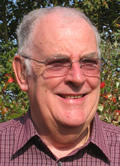 Christopher Jones Christopher Jones
Acceque, UK
In the early 1970’s, as a local leader of Breakthrough Trust, Mr. Christopher Jones raised funds to
develop a small network of 24 Teleprinters as precursor to text telephones for the local deaf people
enabling them to communicate across the telephone network for the first time in their lives. Within
a couple of years, this led to the development of UK’s second local Text Telephone Relay Service,
many years before the National Text Telephone Relay Service. He is a member of TAG for over 20 years –
Telecommunication Action Group, an umbrella organisation consisting of members of deaf organisations in
the UK to further enhance access to electronic communications. During 1980’s, Mr. Christopher Jones
was involved in European multimedia projects: - Europa Lingua Surda, Horizon and PETRA. In 1987, he
received the Churchill Fellowship into multimedia and language development for deaf children. From 1991
to 2007, as Vice President he joined Teletec International, later as Managing Director – distributor
of text telephones. In 2000, a captioned telephone relay service was started until its closure in 2007
due to lack of government funding towards a range of alternative relay services. From 2007 onwards,
Director, AccEquE Ltd, a consulting company into enhanced accessibility and equality into electronic
communications for deaf, deafened, deaf blind and hard of hearing people.
|
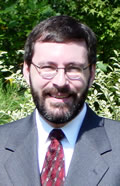 Paul Jones Paul Jones
Cisco, USA
Mr. Jones has been involved in research and development of protocols and system architectures in
the area of multimedia communications, including voice, video, and data conferencing over IP networks,
since 1996. In addition to architecture and software development activities, he has actively participated
in a number of standards and industry organizations, including the ITU, TIA, IETF, ETSI, H.323 Forum, SIP
Forum, and the IMTC. Most notably, he served as editor of ITU-T Recommendation H.323 and as Rapporteur for
the H.323 experts group, as well as serving as the Rapporteur for the H.325 experts group. He is also an
active participant in accessibility-related work in the ITU and TIA, with a particular emphasis on
technology needed for the deaf and hard of hearing. He is presently engaged in the study of the Advanced
Multimedia System (AMS) within the ITU-T, which is envisaged to enable users to utilize a multiplicity
of devices and networks in parallel in order to realize richer multimedia communication capabilities.
|
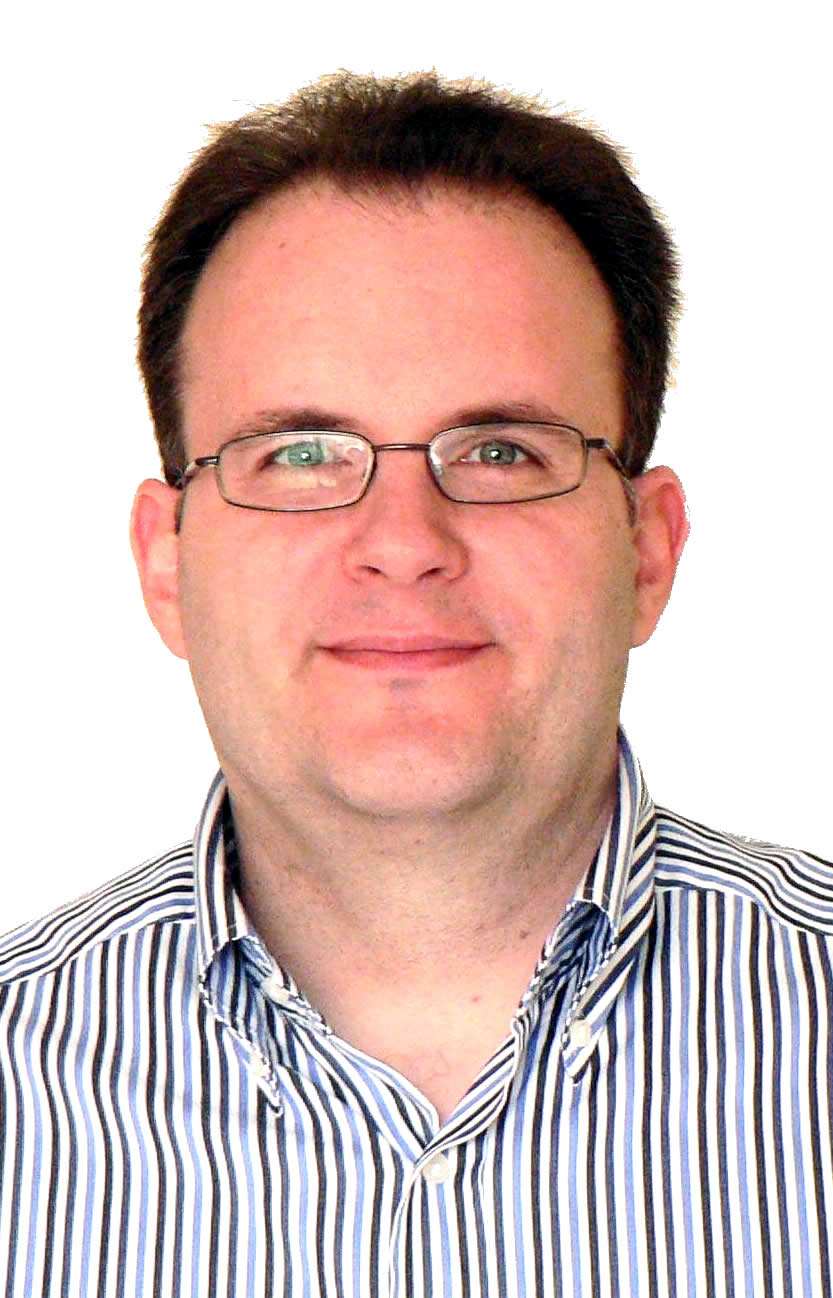 Loïc Martínez-Normand Loïc Martínez-Normand
Universidad Politécnica de Madrid, Spain
Loïc Martínez received the B.S. in 1993 and the PhD in computer science in 2003,
both from the Technical University of Madrid (UPM). He currently teaches at the UPM’s School of Computing.
His major fields of study and research are accessibility for people with disabilities to information
technologies, software development methodologies and data mining techniques, in which he has
participated as a researcher in over 40 European or Spanish research projects. Dr. Martínez
coordinates the Spanish standardization group responsible of the Spanish standards on computing accessibility.
He also participates as an expert in international standardization groups in computing ergonomics and user interfaces.
|
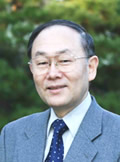 Mitsuji Matsumoto Mitsuji Matsumoto
University of Waseda, Japan
Since joining NTT Labs in 1970, Mitsuji Matsumoto has been engaged in Research in the field of terminal design for Telematics and Multimedia systems. In 1994, he received the Doctor’s Degree of Engineering from Waseda University, Tokyo Japan. In 1996, he joined Waseda University as a Professor. After that he has been studying in the graduate school of the Global Information from 2000. From April 2008, he visit the Center of Excellence for Information and Communication Engineering, Scuola Superiore Sant’Anna, PISA Italy as a visiting Professor.
He started International Standardization activities from 1979 and worked on Facsimile, Telematics, Non voice Services and Multimedia. In 2000-2004 study period, he became a Vice Chairman of ITU-T SG16.
His current research is the Wireless communication using Infrared, Visible Light and Radio wave. He also research on the e-Everything, like e-Learning, Accessibility, ITS, Emergency Call system. He is a member of IEEE, ACM and IEICE, IPSJ, IIEEJ in Japan.
|
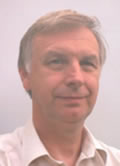 Bill Pechey Bill Pechey
Rapporteur for Question 26/16 "Accessibility to Multimedia Systems and Services"
UK
Bill Pechey is Rapporteur for Question 26/16 (Accessibility). He has participated in the meetings of ITU-T
Study Group 16 and its predecessors since 1978, for several years as head of the UK delegation. He takes a
special interest in the problems faced by deaf people in using telecommunications services. He is
vice-chairman of TAG (www.tagcomm.org.uk), a UK charity which campaigns for better services for deaf,
deafblind and hard-of-hearing people. He is also a trustee of Stagetext, another charity which provides
captioning services in arts venues.
|
 Jeff McWhinney Jeff McWhinney
SignVideo, UK
Jeff McWhinney was appointed Managing Director of Significan’t (sign if I can’t)
in September 2004. Significan’t is a social enterprise, working to use the latest
technological advances to improve access to services for the deaf sign language
communities in the UK. The company’s latest development - the SignVideo Contact
Centre -has won a number of prestigious awards for innovation. SignVideo provides
live, quality video relay services that allow deaf and hard of hearing callers,
who use sign language, to communicate with hearing people effectively and naturally
via a Video Interpreter. Prior to joining Significan’t, Mr McWhinney spent almost
10 years with the British Deaf Association as their first deaf Chief Executive.
Mr McWhinney is a recognised leader within the UK’s deaf community for the depth
and breadth of his expertise and led several deaf organisations to gain advances
for the deaf community, culminating in the long fought for recognition of British
Sign Language as an official language in the UK in 2003. As a deaf sign language
user himself, Jeff is fully aware of the issues faced – lack of access to information
and services and lack of awareness in society generally – and is therefore proud to
bring interpreter provision into the 21st century through SignVideo. Jeff has a wealth
of experience on deaf and videoconferencing issues, has written a number of articles
and is widely consulted on these subjects in the UK and abroad.
|
 Ken Sagawa Ken Sagawa
National Institute of Advanced Industrial Science and Technology (AIST), Japan
Dr. Ken Sagawa is a Prime Senior Researcher of the National Institute of Advanced Industrial
Science and Technology (AIST) in Japan. His major field is visual ergonomics and the assessment
of visual environment. His recent studies have been devoted to Accessible Design of visual
environment for older persons and persons with visual disabilities (low vision). He is a
convenor of ISOTC159/WG2 “Ergonomics for people with special requirements”, AGAD “Advisory
Group for Accessible Design” and TC122/WG9 “Accessible design of Packaging”. He has been also
involved in CIE (International Commission on Illumination) as a chair of some technical
committees in Division 1 “Vision and Color” and a board member (Secretary).
|
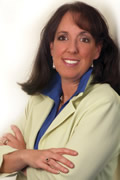 Karen Peltz Strauss Karen Peltz Strauss
KPS Consulting, USA
Karen Peltz Strauss is an attorney who has worked to expand telecommunications access
for people with disabilities for the past 25 years. First as supervising attorney for
Gallaudet University's National Center for Law and Deafness, and later as legal counsel
for the National Association of the Deaf, she drafted and advocated for American laws
requiring telecommunications relay services, closed captioning, hearing aid compatibility
and disability access to telecommunications products and services. She has frequently
testified as an expert witness before the U.S. Congress, and has served numerous federal
advisory committee appointments, including an appointment by President Clinton on the
public interest obligations of digital TV broadcasters. From 1999-2001, she was the
Deputy Bureau Chief for the Federal Communications Commission’s first Consumer Bureau,
where she helped design its first Disability Rights Office. Strauss currently provides
consulting services to the Rehabilitation Engineering Research Center on Telecommunications
Access, non-profit disability organizations and relay service providers. In March of 2007,
Strauss co-founded the Coalition of Organizations for Accessible Technology, or COAT,
consisting of over 250 national and local organizations dedicated to ensuring disability
access to emerging Internet-based and digital communications technologies in the 21st
century (www.coataccess.org). She is also the author of
A New Civil Right: Telecommunications
Equality for Deaf and Hard of Hearing Americans, a comprehensive book detailing the 50-year
history of the movement for and laws governing telecommunications access in America.
Strauss holds a JD from the University of Pennsylvania Law School and an LLM from the
Georgetown University Law Center. |
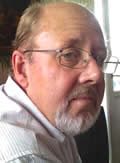 Clas Thoren Clas Thoren
Universidad Politécnica de Madrid, Spain
Clas Thorén has worked with ICT accessibility since the late 1980’s, mainly in
relation to standardisation and to public procurement of ICT in Sweden, as a senior
adviser at the Swedish Administrative Development Agency and the Nordic Cooperation
on Disability. He has managed and participated in Swedish, Nordic and European projects,
e.g. the analysis of conformity assessment systems and schemes for accessibility
requirements, part of the EU mandate M/376. Other examples are Nordic Guidelines
for Computer Accessibility and the EU-financed ACCENT project (Accessibility in ICT Procurement),
both in 1998. He is currently active as a consultant in the domain of ICT accessibility.
|
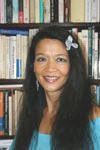 Fanny Corderoy du Tiers Fanny Corderoy du Tiers
Viable, France
Founder/Manager of VIABLE France (VF) in January 2008, her company provides Video Relay
Interpreting (VRI) and beta testing Video Relay Service (VRS) using high-technology platforms
and videophones. Fanny has an over 30-year experience with telecommunication access through
relay services via TTY, Minital, PC/Mac, and VPAD. Between 2006-2008, she conducted three
beta tests of VRS in Paris, utilizing the expertise of her deaf brother, John Yeh, Founder/CEO
of VIABLE Inc. VF participates in the French government’s AGEFIPH and FIPHFP beta test
projects of VRI for hearing-impaired employers of private and public entities. In 2008,
VF conducted the first beta test to provide VRI to deaf students using its videophones.
VF imported VPAD-videophones in May 2009. In September 2009, VIABLE organized the first VRS
project at Taiwan’s Deaflympics with the participation of 5 European countries: the UK, Germany,
Italy, Portgual and Norway. Fanny organizes VIABLE Worldwide with the coordination of over 12
foreign representatives to create VRS in their countries.
In 2001, Fanny was the first deaf French individual to receive the Edward Miner Gallaudet Award
from Gallaudet University. She was the Founder/President, dancer and dance instructor/choregrapher
of the first French deaf national dance/music assocation and the first deaf American dance theater.
She was an international coordinator of Deafway 1 & 2 and the Laurent Clerc Museum Project in France.
In 1983-1990, she was a product manager of the first personal computer telecommunication device « PTC »,
at Integrated Microcomputer Systems, Inc. in the USA.
|
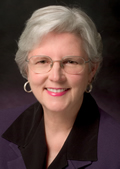 Judith Viera Judith Viera
TDI, USA
Judith Viera is certified as an interpreter by the Registry of Interpreters for the Deaf in the U.S.,
an Adjudicator for its Ethical Practices System, and a Rater for the Commission on Collegiate Interpreter
Education which provides accreditation for interpreter training programs. She has worked on telecommunication
relay standards and specifications adopted by five states and the federal government. She is also a member
of the Board of Telecommunications for the Deaf and Hard of Hearing, Inc., a USA organization that advocates
for access to telecommunications, television, and information technology. As a consumer who is late-deafened
her preferred relay method is Video Relay Service with Voice Carryover, but she also uses IP, captioned
telephone and TTY relay services.
|
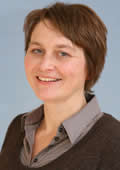 Maya de Wit Maya de Wit
EFSLI, The Netherlands
Maya de Wit is a qualified RID Certified ASL interpreter, Registered Dutch Sign Language
Interpreter and International Sign Interpreter. She has given international presentations on the status
of sign language interpreting in Europe, such as at the Council of Europe High Level Conference (Croatia, 2007)
and WFD congress (Madrid, 2007). In September 2009 Maya was re-elected president of the European Forum of Sign
Language Interpreters (efsli). In 2008 she received an honorably award from the Institute of Sign, Language &
Deaf Studies in Utrecht, the Netherlands, for her extensive contribution to the field of sign language interpreting.
She also became honorary member in 2008 of the Dutch Association of Sign Language Interpreting (NBTG). She is currently
working on her MA in the European Masters of Sign Language Interpreting (EUMASLI).
|
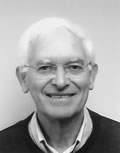 Floris Van Nes Floris Van Nes
Rapporteur for Question 4/2 "Human factors related issues for improvement of the quality of life through international telecommunications"
Floris L. van Nes obtained an MSc degree in Electronic Engineering at Delft University of
Technology and a PhD in Physics and Mathematics at University of Utrecht. At the Institute for
Perception Research IPO, then a collaboration of Philips Research Laboratories and Eindhoven
University of Technology, he led the research group on Information Ergonomics from 1984-1995.
In 1988 he obtained the chair of Information Ergonomics at Eindhoven University of Technology,
where he retired in 2000. He presently participates in ISO standardisation, as convener of
ISO/TC 159/SC 4/WG 2, 'Visual Display Requirements', and ITU-T standardisation on human
factors in telecommunication, as rapporteur of Question 4/2.
|
|
|



